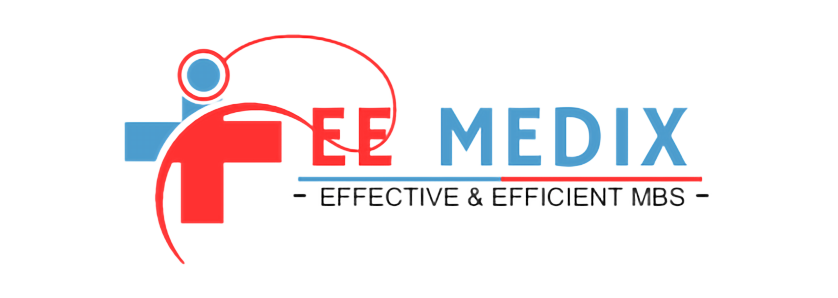Complex world of healthcare, understanding and optimizing your medical revenue service can be a game-changer for unprecedented financial growth. Let’s delve into the realm of medical revenue services, debunk myths, and explore the intricacies of healthcare revenues.
Is the Medical Revenue Service Legit?
The first question that often comes to mind is the legitimacy of the medical revenue service. Rest assured, it’s not just legitimate; it’s a critical component of the healthcare ecosystem. The medical revenue service ensures that healthcare providers get compensated for the valuable services they provide. It’s a legitimate and essential process that keeps the healthcare machinery running smoothly.
What Are Revenues in Healthcare?
Healthcare revenues encompass the funds generated by healthcare providers through various services. From doctor visits and diagnostic tests to surgeries and specialized treatments, these revenues form the financial backbone of the entire healthcare system. Understanding the sources and channels of these revenues is crucial for any healthcare professional aiming for financial growth.
Unveiling the Revenue System in Healthcare
The revenue system in healthcare is a multifaceted structure involving insurance reimbursements, patient payments, and government funding. Navigating this intricate web requires a keen understanding of billing processes, coding regulations, and compliance standards. A well-optimized revenue system ensures that healthcare providers receive timely and accurate payments for the services they render.
Decoding Revenue in Medical Terms
In medical terms, revenue refers to the income generated by healthcare providers, including hospitals, clinics, and individual practitioners. This income is derived from patient care, consultations, procedures, and other medical services. Effectively managing and maximizing this revenue is essential for the financial stability and growth of healthcare organizations.
Optimizing Your Medical Revenue Service
Now that we’ve established the foundations, let’s explore practical ways to transform and optimize your medical revenue service for unprecedented financial growth.
1. Embrace Technology for Streamlined Billing
Incorporate advanced billing software to streamline the billing process. From appointment scheduling to claims submission, technology can significantly reduce errors and enhance the efficiency of your revenue cycle.
2. Staff Training for Coding Accuracy
Invest in staff training to ensure accurate medical coding. Proper coding is paramount for reimbursement accuracy and minimizing claim denials. A well-trained staff contributes to a healthier revenue stream.
3. Enhance Patient Communication for Timely Payments
Improve patient communication regarding billing matters. Clear, transparent communication about costs, payment plans, and insurance details can lead to more timely payments and reduced accounts receivable.
4. Leverage Data Analytics for Financial Insights
Harness the power of data analytics to gain valuable insights into your financial performance. Analyzing revenue trends and identifying potential areas for improvement can guide strategic decision-making for financial growth.
5. Stay Informed About Regulatory Changes
The healthcare landscape is dynamic, with frequent regulatory changes. Staying informed about these changes is crucial for compliance and optimized revenue management. Regular updates and training ensure your revenue service adapts to evolving healthcare regulations.
6. Build Robust Patient Relationships
Establishing strong patient relationships goes beyond medical care. A satisfied patient is more likely to fulfill their financial obligations promptly. Focus on providing excellent service and building trust to strengthen your revenue service.
7. Diversify Revenue Streams
Explore opportunities to diversify revenue streams. Introduce new services, collaborate with other healthcare providers, or consider alternative payment models to reduce dependence on a single source of income.
8. Conduct Regular Financial Audits
Regular financial audits help identify discrepancies, streamline processes, and ensure compliance. Auditing your revenue service enhances transparency and mitigates financial risks.
9. Implement Performance Incentives for Staff
Motivate your staff by implementing performance incentives tied to revenue targets. A motivated team is more likely to contribute to the financial success of the healthcare organization.
10. Engage in Community Outreach for Increased Patient Base
Expand your patient base through community outreach programs. Building a strong presence in the community can attract new patients, thereby boosting your revenue potential.
Conclusion
Optimizing your medical revenue service is a continuous process that requires attention to detail, adaptability, and a commitment to excellence. By embracing technology, investing in staff training, and fostering strong patient relationships, you can position your healthcare organization for unprecedented financial growth.
Frequently Asked Questions (FAQs)
Q1: Is the medical revenue service only about billing?
Yes, while billing is a significant component, the medical revenue service encompasses the entire process of generating income for healthcare providers, including billing, coding, and financial management.
Q2: How can technology improve the efficiency of the revenue cycle?
Technology streamlines billing processes, reduces errors, and expedites claims submission, leading to a more efficient and error-free revenue cycle.
Q3: Why is patient communication crucial for optimizing revenue?
Clear communication about costs, payment plans, and insurance details fosters trust, leading to more timely payments and improved revenue collection.
Q4: How do diversifying revenue streams benefit healthcare providers?
Diversifying revenue streams reduces dependence on a single source of income, making healthcare organizations more resilient to economic fluctuations.
Q5: Why is staying informed about regulatory changes important for revenue management?
Staying informed ensures compliance with evolving healthcare regulations, reducing the risk of legal issues and optimizing revenue management strategies.

